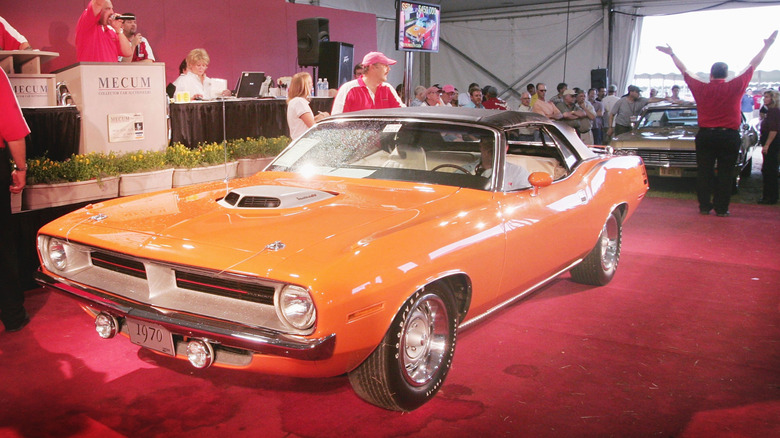
It's hard to imagine life as a gearhead before televised collector-car auctions. Mecum, for instance, started its live coverage in 2008, and in June launched its own Mecum Auctions TV channel, offering 24/7 coverage on the Roku Channel of past and present auctions of everything from Vespas to Volkswagens. When a vehicle fails to sell, viewers hear the dreaded four-word phrase "The bid goes on." But what exactly does that mean?
First, let's backtrack a little. Vehicles auctioned without a reserve price — that is, a predetermined lowest price the seller will accept — will sell, period, regardless of how high or low the final bid amount is. That's riskier for sellers since they're not guaranteed a certain minimum, but no-reserve auctions often create interest and excitement among buyers, which attracts bids. With reserve auctions, on the other hand, the seller is not obligated to sell his or her vehicle unless the price reaches a certain level. The magic number that is the reserve is not known to bidders.
For example, a seller sets a $50,000 reserve for their car or truck at a Mecum auction, but bidding only reaches $40,000. It's off to the "the bid goes on" paddock for that vehicle. There, potential buyers can continue to bid and/or negotiate via auction representatives during the event or remotely later, up to 21 days after the live auction ends.
 Scott Olson/Getty Images
Scott Olson/Getty Images
If an auction with a $50,000 reserve only reaches a maximum bid of $40,000, it's entirely possible that the seller and the highest bidder might meet in the middle at $45,000 when "the bid goes on." On the other hand, if the reserve price is $50,000, but the highest bid is $20,000, there's clearly a disconnect involving the seller's price expectations that's unlikely to be finessed into a deal by Mecum's savvy staff.
If the reserve isn't met and an acceptable compromise isn't reached post-auction, the seller can always relist the car or truck for auction at a future event. Another option is to market it at a different auction house or an online-only venue such as Bring A Trailer or Cars & Bids — the latter formed by ex-Jalopnik contributor Doug DeMuro.
If relisting following a failed sale, sellers should consider removing their reserve price. Otherwise, bidders may reason that an unrealistically high reserve price is still in place and fail to participate. According to Hagerty, 79% of vehicles quickly relisted with no reserve received higher bids than during their reserve auctions.
Mecum's competition, Barrett-Jackson, is another heavy hitter in televised collector-car auctions, including that of President Donald Trump's Lamborghini Diablo VT Roadster. But unlike Mecum, Barrett-Jackson heavily discourages reserve auctions to the point that from 2005 until 2011, the company's flagship Scottsdale, Arizona event had no reserves on any vehicles. In those cases, not selling was not an option.
















